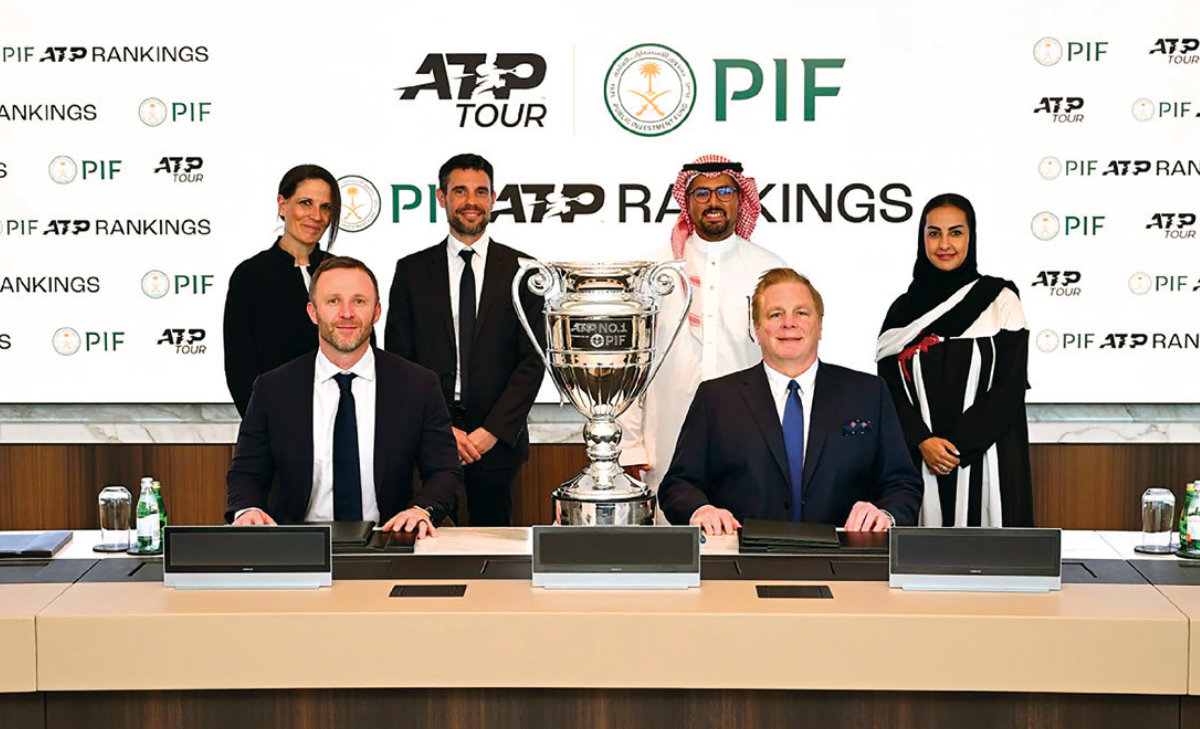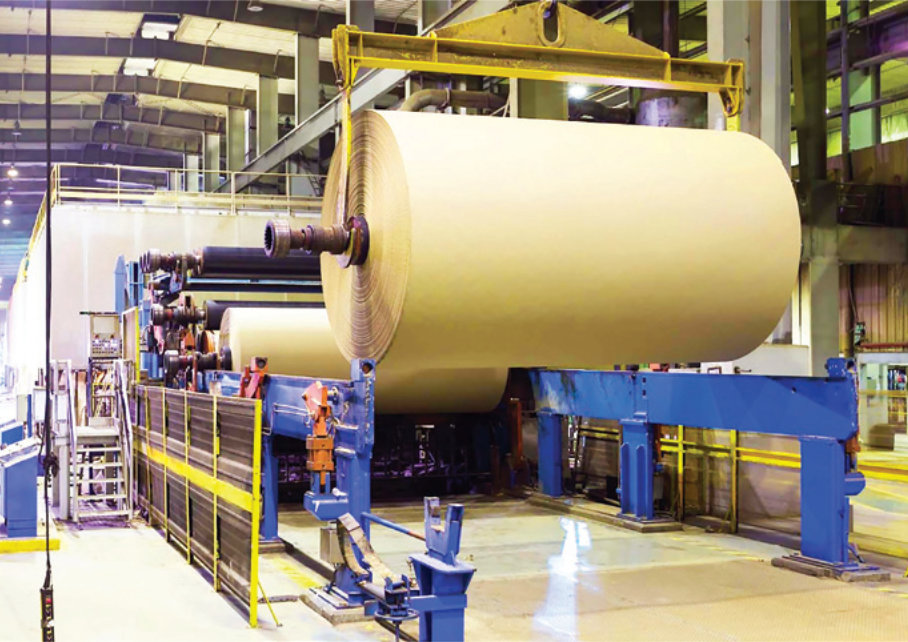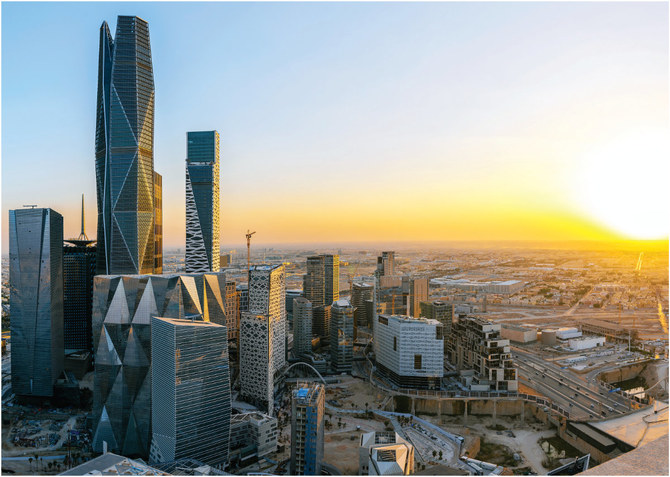RIYADH: Tennis, tech and paper production are just some of the areas Saudi Arabia’s Public Investment Fund has reached into so far in 2024, as the body continues to drive forward the Kingdom’s economic diversification agenda.
The sovereign wealth fund has continued with the momentum built up in 2023, which saw it make investments in companies as diverse as London’s Heathrow Airport and Rocco Forte Hotels.
Its activities since the turn of the year saw PIF revise its asset size on its website, reaching $925.2 billion after it climbed to the fifth spot in a ranking of state-owned investment organizations by the Sovereign Wealth Fund Institute.
This monumental rise in the fund’s standing followed its procurement of an additional 8 percent stake in Aramco, boosting its shareholding’s estimated value to $328 billion.
Here are some of the key announcements made by the wealth fund so far in 2024
PIF’s deal with Bahrain Mumtalakat to enhance investments
One of the primary deals signed by PIF in the first quarter was a memorandum of understanding inked with Bahrain’s sovereign wealth fund Mumtalakat in March.
The agreement aims to expand cooperation between the two parties, enable new and promising investment prospects in Bahrain, and create opportunities for private companies in both countries.
Yazeed Al-Humied, deputy governor and head of MENA Investments at PIF, said the deal supports the wealth fund’s objectives of building long-term strategic regional partnerships that bring additional value to local economies.
“It also enables the achievement of sustainable returns that further contribute to maximizing PIF’s assets and diversifying the economy in line with the objectives of Saudi Vision 2030,”
said Al-Humeid.
PIF acquired 40 percent stake in Zamil Offshore
In February, the wealth fund acquired a 40 percent stake in Zamil Offshore Co., a significant move that could boost marine support services in Saudi Arabia.
In a press statement, PIF revealed that this investment is part of the fund’s broader strategy to contribute to the development of the Kingdom’s energy base.
Zamil Offshore Co. is one of the largest Saudi-based offshore support providers, operating over 90 vessels in the Arabian Gulf.
Bakr Al-Muhanna, head of the Transport and Logistics Sector in Middle East and North Africa Investments at PIF, said that this investment will strengthen the offshore support industry, contributing to the fund’s wider efforts to develop Saudi Arabia’s energy ecosystem.
PIF’s efforts to accelerate growth of global tennis sports
In February, the wealth fund signed a multi-year strategic agreement with the Association of Tennis Professionals aimed at accelerating the growth of the sport globally.
“Through our collaboration with ATP, PIF will be a catalyst for the growth of the global tennis landscape, developing talent, fostering inclusivity and driving sustainable innovation. This strategic partnership aligns with our broader vision to enhance quality of life and drive transformation in sport both within Saudi and across the world,” said Mohamed Al-Sayyad, head of corporate brand at PIF.
Under the deal, PIF will leverage ATP’s expertise to develop further opportunities for young Saudis in wtennis, including the development of state-of-the-art facilities and ensuring the availability of necessary coaching in the Kingdom.

In February, PIF signed a multi-year strategic agreement with the Association of Tennis Professionals aimed at accelerating the growth of the sport globally. (Supplied)
The launch of Alat
Another significant development in February was the launch of Alat, a PIF firm aimed at turning Saudi Arabia into a global hub for sustainable technology manufacturing.
The company will prioritize constructing products tailored for local and international markets across seven strategic business units. These include advanced industries and semiconductors, smart appliances and health solutions, as well as smart devices and building technologies.
Alat will also manufacture more than 30 product categories that will serve vital sectors, including robotic and communication systems, advanced computers and digital entertainment, as well as advanced heavy machinery used in construction, building and mining.
Acquisition of Mepco in diversification push
In January, PIF bought a 23.08 percent stake in the Middle East Paper Co. as the fund continued expanding its investments in the Saudi economy’s primary sectors.
According to a statement, the body acquired the stakes by increasing capital and subscribing to new shares in Mepco. Muhammad Aldawood, PIF’s head of the industrials and mining sector in the Middle East and North Africa region, said the fund’s investment in Mepco reflects the attractive growth opportunities in promising sectors such as recycling, retail, and building materials.
The fund added that PIF’s investment in Mepco will support the private sector in Saudi Arabia, boost local content, increase exports as well as improve quality and competitiveness.
Sami Al-Safran, CEO of MEPCO, said that PIF’s investment will help the company become a national champion in the recycling industry.
“PIF’s investment further enables the implementation of our expansion strategy and captures significant growth potential, both locally and regionally,” said Al-Safran.

In January, PIF bought a 23.08 percent stake in the Middle East Paper Co. as the fund continued expanding its investments. (Supplied)
Completion of the acquisition of Dubai-based Kent
In February, Saudi contractor Nesma & Partners, backed by PIF, completed the acquisition of Kent, based in Dubai, after signing an agreement in 2023.
In a statement, Nesma said that the acquisition aligns with the company’s strategic growth strategy and aims to position the firm as a global leader in the construction industry.
“The acquisition of Kent represents a significant milestone for Nesma & Partners, reinforcing our commitment to expanding our capabilities and enhancing our position in the global market,” said Samer Abdul Samad, president and CEO of Nesma & Partners.
According to the acquisition details, Kent and Nesma do not plan to integrate operations, and both firms will continue their existing projects.
PIF aims to strengthen electric motorsports sector
In January, the wealth fund signed a multi-year agreement named Electric 360 with Formula E, Extreme E and E1 to support the growth of electric motorsports and their role in advancing the future of electric mobility.
In a press statement, PIF said the partnership will drive technological innovation and revolutionize sustainable transport and future mobility, ultimately reducing carbon emissions.
“Together with these championship series, Electric 360 will redefine electric sport and supercharge its growth, delivering tangible impact aligned with our broader business strategy as PIF drives new green technological innovation that will be the cornerstone of future electric mobility,” said Mohamed Al-Sayyad, head of corporate brand at PIF.




























